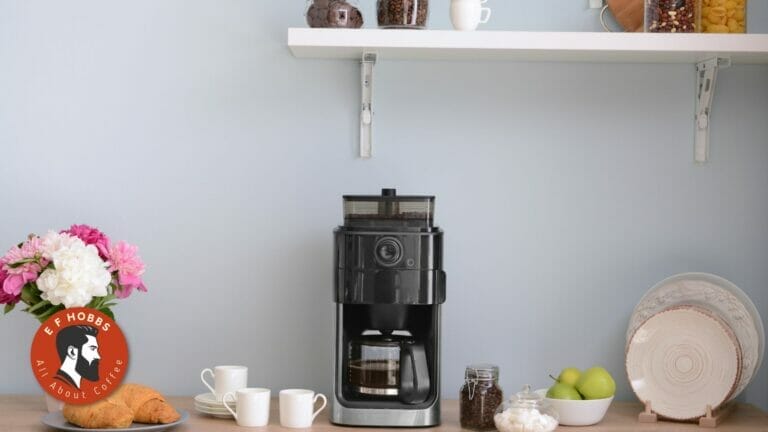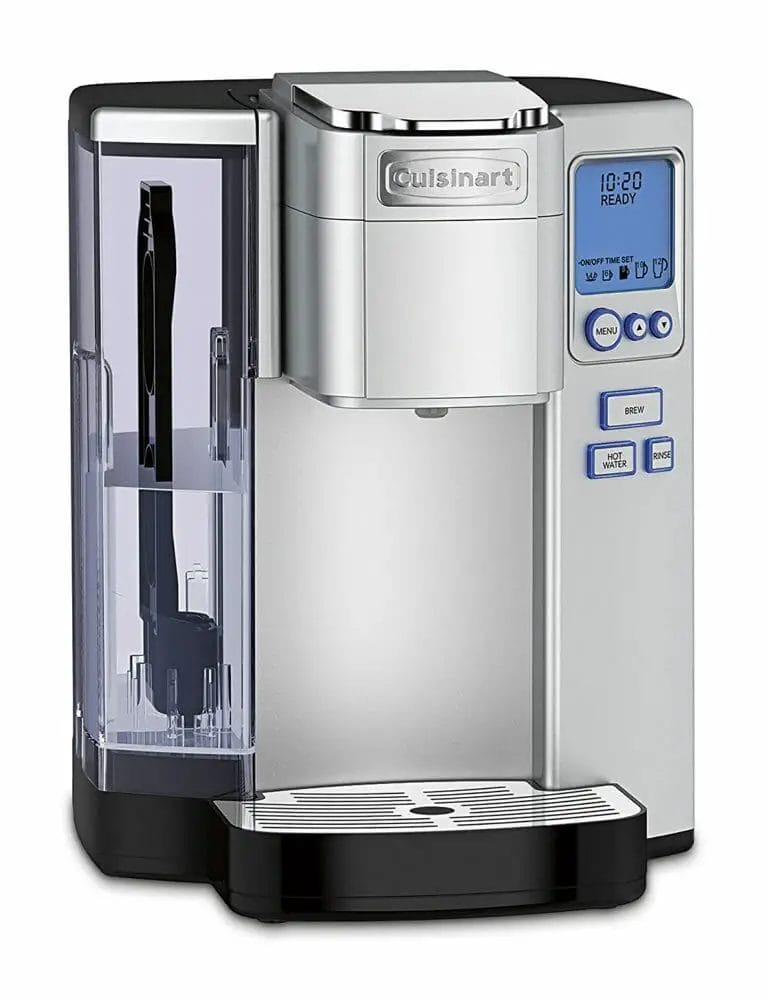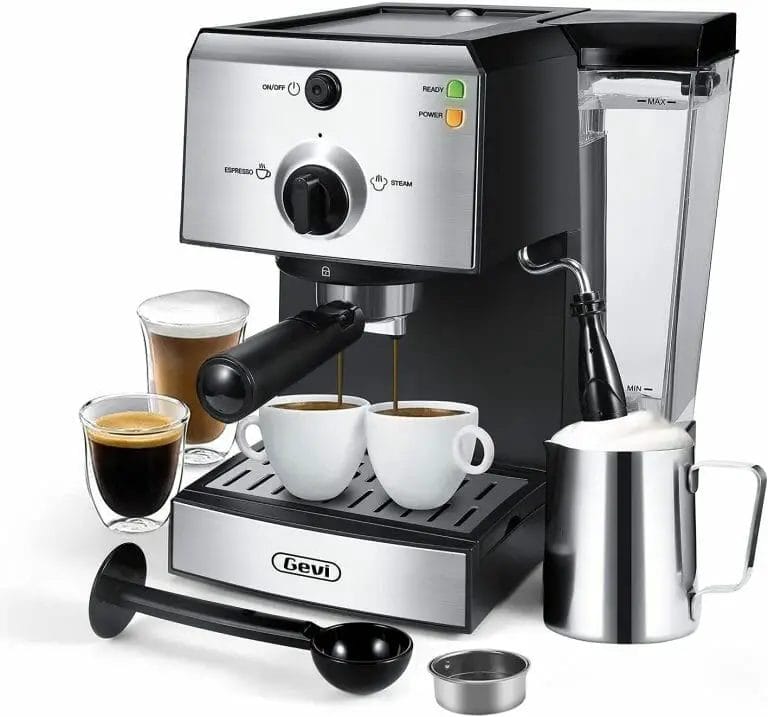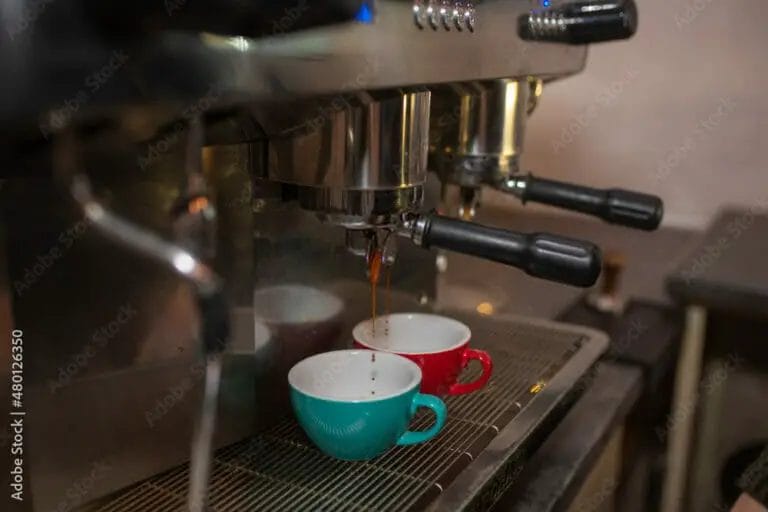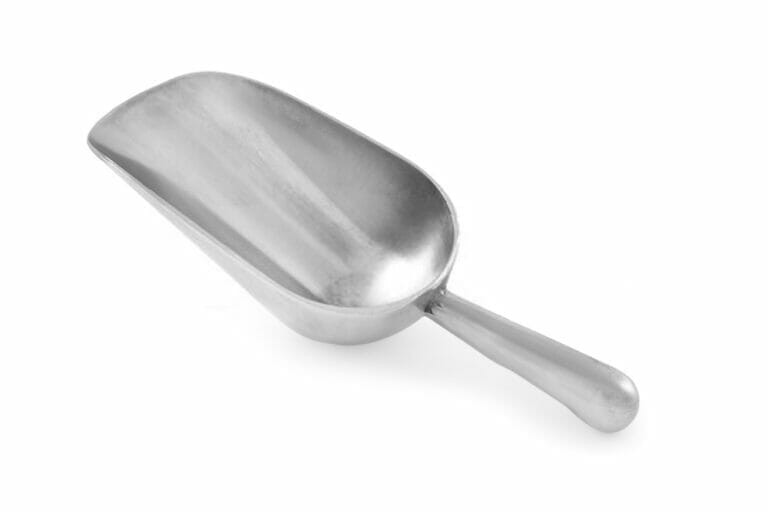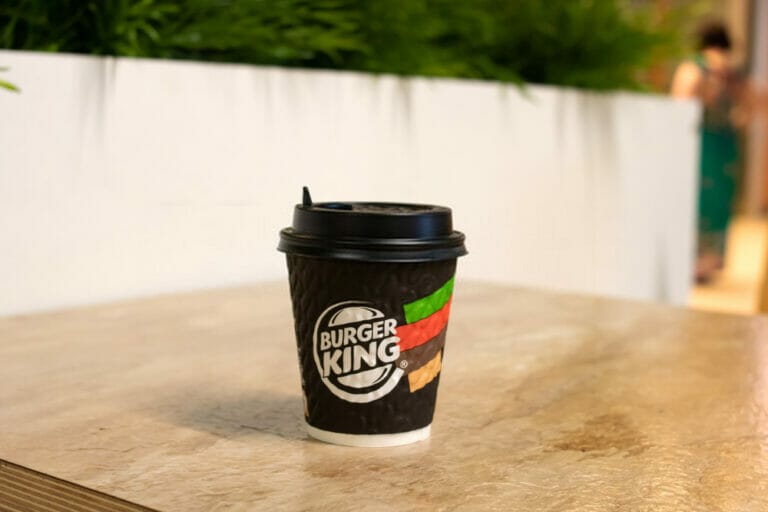Unlocking Flavor: Discover the Best Water for Your Keurig Machine

Key Takeaways
- Filtered or bottled water is recommended for Keurig brewing to control mineral content and pH levels for optimal taste and machine longevity.
- Hard water with higher mineral content produces bolder flavors, while soft water with low mineral content results in a sweeter and less bitter brew.
- Proper maintenance of the machine is important to ensure optimal performance and taste, as poor-quality water can lead to mineral buildup and damage.
- Experimentation with different types of water, adjusting the water-to-coffee ratio, and considering personal preferences can help find the best water for Keurig brewing.
Introduction
You’re about to discover how choosing the right water can take your Keurig coffee brewing game to the next level.
Get ready for some valuable insights that’ll enhance your morning cup of joe like never before!
When it comes to brewing a perfect cup of coffee, people often overlook the importance of water.
However, using high-quality water is crucial in bringing out the best flavor and aroma from your Keurig brew.
It’s no secret that coffee is made up mostly of water, which means that any impurities or minerals present in the water will affect the taste of your coffee.
Even though tap water may seem like a convenient option, it’s not always ideal for brewing coffee as it contains chlorine and other chemicals that can alter its taste.
That’s why investing in good quality filtered or bottled water is essential.
Using filtered or bottled water ensures that you have control over the mineral content and pH levels, resulting in a smoother and more well-rounded flavor profile.
Additionally, it prevents any build-up of minerals on your Keurig machine – something that could eventually affect its performance if left unchecked.
The type of water you use also plays a significant role in determining the final taste of your cuppa joe.
Softwater with low mineral content results in a sweeter and less bitter brew while hard-water with higher mineral content tends to produce bolder flavors.
Hence, experimenting with different types of waters allows you to customize your Keurig brew according to your personal preference.
The Quick Answer: Best Water for Keurig

☕ Filtered Water: Your go-to option for a fantastic Keurig brewing experience. Using filtered water not only enhances the taste of your coffee but also ensures the longevity of your Keurig machine by preventing mineral buildup.
🌡️ Temperature Control: A crucial aspect of brewing excellent coffee with your Keurig is maintaining the optimal temperature range. Aim for a brewing temperature between 195°F and 205°F – this allows you to extract just the right amount of flavor without over-extracting or burning your coffee. If your Keurig machine doesn’t have built-in temperature control settings, consider investing in an external thermometer to ensure accuracy.
💎 Mineral Content: Balance is essential when it comes to mineral content in the water you use for your Keurig.
Keurig recommends having a mineral content of 150 ppm (parts per million) or less for optimal performance.
Minerals enhance the taste of your coffee, but too much can result in scaling and buildup, which can damage your machine over time.
To know the mineral content of your tap water, consider having it tested or opt for bottled spring water.
By following these guidelines, not only will your Keurig coffee taste amazing, but you can also ensure the durability and efficiency of your beloved Keurig machine. Time to brew and enjoy! ☕️🥳
Why Water Quality Matters for Your Keurig
Did you know that the quality of the water you use in your Keurig can drastically affect the taste of your coffee and even shorten the lifespan of your machine?
Water quality plays a pivotal role in coffee brewing, and this is especially true for single-serve machines like Keurigs.
Using poor-quality water can lead to mineral buildup in your machine’s heating element, which can impair its performance over time.
This not only affects the taste of your coffee but also shortens the lifespan of your machine.
Water quality is important when it comes to Keurig maintenance. The minerals present in water can build up inside the machine’s heating element, causing clogs and leading to malfunctioning.
Over time, this buildup can result in costly repairs or even replacement of your Keurig altogether.
By using filtered or bottled water with low mineral content, you can prevent this from happening and prolong the life of your machine.
Another reason why water quality matters for your Keurig is because it affects taste preferences.
Different mineral compositions affect flavor profiles, so using high-quality water will help enhance the taste and aroma of your coffee.
If you’re looking for a better tasting cup of coffee from your Keurig, then investing in good-quality water is essential.
So next time you brew a cup with your Keurig, make sure to use filtered or bottled water to get the perfect cup every time!
Understanding What Makes Water ‘Best’ for Keurig
Nothing beats the feeling of satisfaction that comes with brewing a perfect cup of coffee.
But did you know that the water composition used in your Keurig machine can significantly impact the taste and quality of your coffee?
The minerals, pH levels, and hardness present in the water all play a vital role in determining what makes water ‘best’ for Keurig.
To ensure that you are using the best water for your Keurig, it is important to consider filtering options.
It’s recommended to use filtered or bottled water rather than tap water as tap water often contains excess minerals and chemicals that can negatively affect the taste of your coffee.
Additionally, hard water can cause buildup in your machine over time, leading to potential damage and decreased performance.
By using filtered or bottled water, you can ensure consistent quality and avoid any potential damage to your machine.
When considering taste preferences, it is essential to understand that different regions have varying mineral compositions in their water sources.
Some may prefer a softer taste with lower mineral content while others may enjoy a slightly harder taste.
Ultimately, personal preference plays a significant role in determining what makes ‘best’ for Keurig.
However, by understanding how each parameter impacts the taste and quality of your coffee, you can make informed decisions on how to achieve optimal results for yourself and others who share similar preferences.
Three things to keep in mind when choosing the best water for Keurig:
- Using filtered or bottled water will ensure consistency and prevent potential damage from hard tap water.
- Hardness levels impact both taste and performance of your machine over time.
- Personal preference plays an important part in determining what makes ‘best’ for Keurig – some may prefer softer tastes while others may enjoy slightly harder ones depending on their specific region’s mineral composition.
Exploring Water Types: Pros and Cons for Keurig

Discovering the advantages and disadvantages of various types of water can help you enhance your Keurig coffee experience.
When it comes to using a Keurig, water quality plays a crucial role in determining the taste of your coffee or tea.
While tap water is easily accessible and convenient, it might not be the best option due to its mineral content and chlorine levels that can affect the machine’s health.
On the other hand, bottled water may have better taste quality but can be expensive in the long run.
Filtered water is a popular choice for Keurig users as it removes impurities such as chlorine, lead, and sediment from tap water while preserving minerals that contribute to flavor.
It also helps protect your Keurig from mineral build-up that could damage the machine over time.
One downside to filtered water is that it still contains dissolved solids like calcium and magnesium which can leave residue on your machine if not cleaned regularly.
Distilled water is another option that some people use with their Keurigs because it has no minerals or contaminants left after evaporation and condensation processes.
However, distilled water lacks minerals essential for good coffee taste and can even leach minerals out of metal parts in your machine over time.
It may also produce a flat-tasting brew due to its lack of mineral content.
| Water Type | Pros | Cons |
|---|---|---|
| Tap Water | Convenient availability; Free (except for cost) | High level of chlorine; Mineral buildup risk |
| Bottled Water | Good taste; Low mineral content | Expensive; Environmental concerns |
| Filtered Water | Removes impurities; Preserves mineral flavor | Still contains dissolved solids; Needs regular maintenance |
| Distilled Water | No contaminants left behind; No minerals needed in cleaning process | Flat-tasting brews without added minerals ; May damage metal parts |
Understanding different types of water available for use with your Keurig can help you make an informed decision about what works best for your machine and personal preferences.
While tap water may seem like the easiest option, it’s important to consider its mineral content and potential harm to your Keurig.
Filtered water is a solid choice that preserves beneficial minerals while removing impurities.
Bottled water is a convenient alternative but can be costly in the long run. Finally, distilled water might lack essential minerals for good coffee taste and could even damage your machine if used regularly without cleaning.
Regional Water Variations and Keurig Performance
As you travel to different regions, the unique water properties can greatly impact the flavor of your Keurig coffee and even affect the performance of your machine.
For example, in areas with high mineral content or hard water, minerals like calcium and magnesium can build up in your Keurig’s internal components over time.
This buildup may lead to clogs, slower brewing times, and even premature machine failure.
To prevent this from happening, it’s essential to perform regular maintenance on your Keurig by following manufacturer recommendations and using water that’s been properly tested.
Regional variations in water quality are also a key factor in determining the best type of water for Keurig machines.
Some areas have naturally soft or low-mineral content water, which may not require additional filtration or treatment before use.
But in other regions with harder water conditions, using filtered or purified water may be necessary for optimal Keurig performance and taste.
Water testing kits can help determine what type of treatment is needed based on regional variations in mineral content.
In short, understanding regional variations in water quality is critical for optimal Keurig performance and taste.
By performing regular maintenance on your machine according to manufacturer guidelines and using properly treated or filtered water based on local conditions, you can ensure a consistent coffee experience no matter where you go.
The Impact of Water Hardness on Keurig
Hard water can wreak havoc on your Keurig machine, causing mineral buildup that affects both performance and flavor.
Calcium and magnesium are the culprits behind this problem, as they tend to accumulate in the machine’s internal components over time.
This buildup can lead to clogs in your Keurig’s water lines, which will slow down or completely hinder its performance.
Moreover, hard water can also change the taste of your coffee by adding an unpleasant metallic flavor.
To avoid these issues caused by hard water, you need to invest in a good water filtration system for your Keurig machine.
The filtration process will remove most of the minerals that cause mineral buildup and affect coffee flavor.
Additionally, you should regularly perform a descaling process on your Keurig machine every three months or so.
Descaling involves running a mixture of white vinegar and water through the Keurig’s internal components to break down any accumulated minerals.
Maintenance tips are essential when dealing with hard water and Keurig machines.
To help you maintain your Keurig’s performance and ensure optimal coffee flavor, we have created a simple checklist for you:
| Maintenance Tips | Description |
|---|---|
| Use filtered or bottled water | Avoid using tap water if possible since it contains high levels of minerals that contribute to scale buildup |
| Perform regular descaling | Running a solution of white vinegar and distilled water through the brewer periodically helps prevent mineral accumulation |
| Clean removable parts frequently | Regular cleaning will help prevent mold growth and ensure that no leftover coffee oils are affecting taste |
By following these maintenance tips, you’ll be able to enjoy excellent-tasting coffee from your Keurig for years without experiencing any performance limitations or foul flavors.
The Art of Adjusting Water-to-Coffee Ratios in Keurig
You now know the impact of water hardness on your Keurig machine, but did you know that adjusting the water-to-coffee ratio can transform your brew’s taste and strength? It’s an art that every coffee lover should master.
Here’s how to do it:
- Start by experimenting with different ratios. For example, a 1:10 ratio means one part coffee to ten parts water. Try increasing or decreasing the amount of coffee to find the perfect balance for your taste buds.
- Pay attention to the flavor profile of each ratio. A stronger brew will have more bitter notes, while a weaker brew will be smoother and more mellow.
- Adjust the temperature of your water based on your desired strength and flavor profile. Higher temperatures extract more flavor from the beans, resulting in a stronger brew.
- Keep track of your favorite ratios and temperatures so you can easily replicate them in the future.
By mastering this technique, you’ll no longer have to settle for mediocre coffee from your Keurig machine.
With just a few adjustments, you can create a custom cup of joe that perfectly suits your preferences. So go ahead, experiment away!
FAQs
Conclusion
Now that you have the tools to perfect your Keurig brew, it’s time to unlock a world of flavor possibilities.
By adjusting the water-to-coffee ratio, you can create a cup that suits your taste buds perfectly.
However, with so many types of water available on the market, which one is best for your Keurig?
Overall benefits should be the first consideration when choosing water for your Keurig. Distilled or purified water may produce a cleaner taste in your coffee because it lacks minerals and impurities found in tap water.
On the other hand, some people prefer tap water because it contains trace amounts of minerals that enhance the flavor of their coffee. Ultimately, it comes down to user preferences and experimentation.
Possible limitations are also important factors to consider when selecting water for your Keurig.
If using distilled or purified water exclusively, you may miss out on some minerals that enhance flavor profiles in certain roasts or blends.
Additionally, if using tap water with high mineral content or hardness levels, buildup may occur in the machine over time and require more frequent cleaning.
There isn’t a one-size-fits-all answer when it comes to choosing the best water for your Keurig.
Experimentation with different types of water is key to finding what works best for you and produces a cup that satisfies your taste buds’ desires.
Remember to consider overall benefits and possible limitations before making any decisions about what type of H2O will go into brewing up those delicious cups of coffee!

